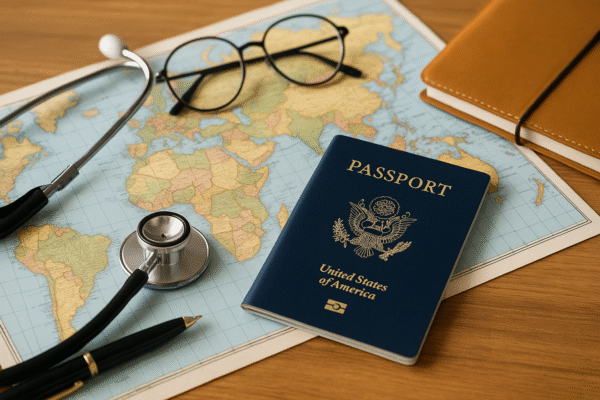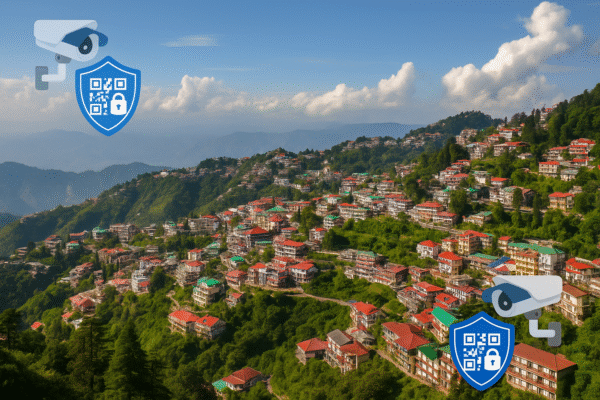In a bold response to growing concerns about overtourism, the government of Uttarakhand, India has launched a suite of digital initiatives aimed at regulating the flow of tourists into Mussoorie, one of the state’s most iconic hill stations. These proactive measures come as the scenic town continues to face overwhelming pressure on its infrastructure, natural resources, and environment due to unregulated mass tourism, especially during peak holiday seasons.
Mussoorie, often called the “Queen of the Hills,” has long been a cherished escape for travelers seeking mountain serenity. But the town’s popularity has come at a cost. Between 2022 and 2024, tourist footfall doubled, resulting in heavy traffic congestion, inadequate waste management, depleted water supplies, and rising pollution levels. To counter these impacts and ensure long-term sustainability, the Uttarakhand Tourism Department has initiated a comprehensive digital registration program designed to monitor and manage tourist activity more effectively.
Digital Tourism Portal for Hotels and Homestays
The first step in Uttarakhand’s new tourism control strategy is the mandatory registration of all lodging establishments in Mussoorie—including hotels, resorts, guesthouses, and homestays—on a dedicated digital tourism portal. This centralized system requires property owners to submit complete operational details, including the name and category of the accommodation, owner’s contact information, total number of rooms, and maximum guest capacity.
In addition, property managers must record guest information digitally at the time of check-in. This real-time data feed allows tourism authorities to accurately track the number of visitors staying in Mussoorie at any given time, enabling timely resource planning and crowd control interventions.
The initiative is supported by the Uttarakhand Tourism Development Board (UTDB) and aligns with the state’s broader vision of digital governance in tourism. The goal is to create a reliable, transparent mechanism that deters unauthorized accommodation businesses while ensuring visitors are accounted for during emergencies or environmental alerts.
Proposed Tourist Pre-Registration and QR Code-Based Entry
To further enhance visitor regulation during high-traffic periods, the Dehradun district administration is proposing a new tourist pre-registration system. Tourists traveling to Mussoorie during peak seasons—such as summer vacations, long weekends, and festive holidays—may soon be required to register online before arrival.
The proposed system would prompt travelers to input key information such as name, contact number, number of group members, and vehicle registration details. Upon successful registration, an OTP-based verification will generate a unique QR code that must be presented at designated town entry points.
To facilitate this process, the administration is installing Automated Number Plate Recognition (ANPR) systems at critical checkposts, including Kimadi, Kempty Fall, and Kuthal Gate. These digital checkpoints will scan vehicle number plates and QR codes to verify tourist registration in real time, allowing only pre-registered travelers into the town.
Environmental Urgency and Legal Backing
The introduction of these control systems follows increasing pressure from environmental agencies and legal institutions. The National Green Tribunal (NGT), a judicial body that oversees environmental protection in India, has issued multiple directives urging the Uttarakhand government to impose limits on tourism in ecologically sensitive regions like Mussoorie.
Excessive footfall in Mussoorie has led to serious degradation of the natural environment, including soil erosion, forest encroachment, air pollution from vehicular emissions, and declining water tables. Local biodiversity is also under threat, with animals and birds retreating deeper into the hills due to human intrusion.
These new rules represent the state’s commitment to upholding NGT recommendations while balancing tourism’s economic benefits with environmental responsibility. Authorities also stress that these measures are not designed to discourage tourism, but rather to ensure a safer, more organized, and eco-friendly experience for all visitors.
Sustainable Tourism as a Long-Term Strategy
Mussoorie’s new digital framework is being hailed as a potential model for other popular destinations in Uttarakhand, including Nainital, Auli, and Chopta, which face similar overtourism risks. State officials have confirmed that if the current system proves effective, it may be expanded to cover the entire region, especially during high-demand months.
The initiative aligns with the Sustainable Development Goals (SDGs) outlined by the United Nations World Tourism Organization (UNWTO), which encourage local governments to use smart technology and data-driven planning to minimize tourism-related environmental impacts.
In tandem, the state is working on public awareness campaigns to educate tourists on responsible travel practices, including limiting plastic use, respecting wildlife, and avoiding overbooking during high seasons.
Conclusion: A Digital Blueprint for Sustainable Travel
By embracing digital tools to monitor and regulate tourism, Uttarakhand is taking crucial steps toward ensuring that Mussoorie retains its charm and ecological balance for future generations. The combination of hotel registration, digital check-ins, and possible QR-code-based entry promises to revolutionize how tourism is managed in India’s hill stations.
As more travelers seek cooler climes and scenic getaways, this model could pave the way for a nationwide conversation on sustainable tourism management. For now, Mussoorie stands at the forefront of this movement—preserving its legacy while welcoming the world, responsibly.
For more travel news like this, keep reading Global Travel Wire



















